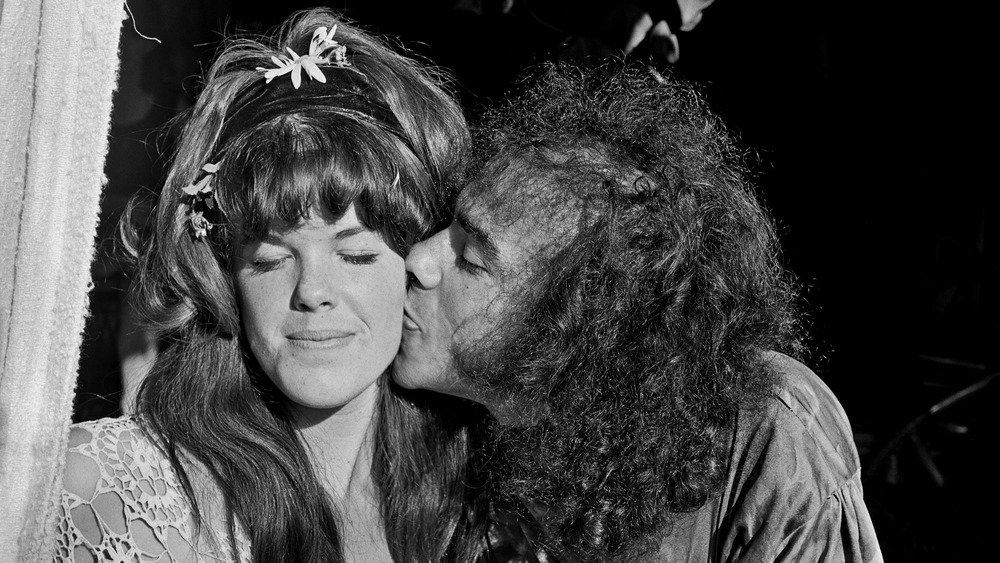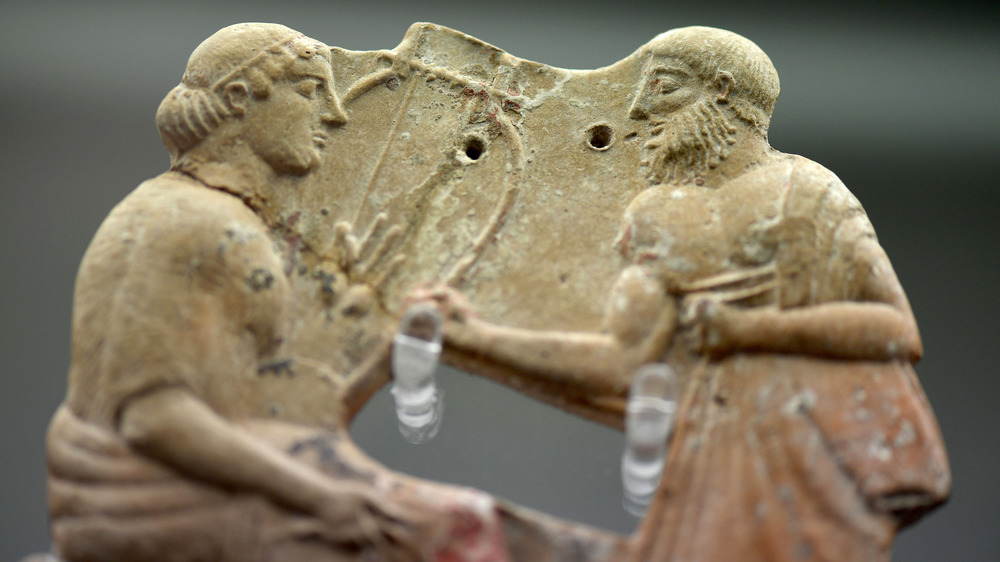When Did Humans First Fall In Love?
If we were trying to identify the high point of the Western veneration of true love, we would most likely hope to find it somewhere in the 1960s. The famous Summer of Love occurred in 1967, when the themes of peace, harmony, and free love were spread by hundreds of thousands of a new wave of youthful counter-culturalists, the hippies, who descended upon the city of San Francisco in droves. The same year, The Beatles released their famous anthem "All You Need Is Love," a perfect distillation of the group's core message that was beamed around the planet, says The Beatles Bible, as part of the Our World satellite broadcast.
But when we look back at the concept of "love" as it was espoused in the '60s, it is obvious that the word evokes something different entirely than, say, the love that is spoken of in the great love stories, such as Jane Austen's novel "Pride & Prejudice" or Shakespeare's play "Romeo & Juliet."
What the counterculture of the '60s was promoting was something akin to universal belonging, which was also closely tied to the concept of individual freedom. It is a far cry from what we think of as part and parcel of great romances: yearning, sacrifice, and, so often in these stories, pain. So where did the concept of monogamous, romantic love come from?
The origins of Love
In an article published in Psychology Today titled "The Day Love Was Invented," Lubomir Lamy traces the early, "loveless" origins of marriage back to ancient Greece. Back then, Lamy states, "the consent of marriage was given by the father of the bride, who wasn't allowed an opinion of her own. So it was the father who had to be convinced of the interest the union of his daughter with a rich and prestigious, or at least worthy family, would bring." Marriage was often organized in exchange for a dowry — property and/or money which the bride brought to her husband — a practice that was still prevalent in Europe well into the final decades of the 19th century.
Lamy identifies the aristocratic courts of 11th and 12th century France as the origin of romantic love as we know it today, claiming that it was during this period that the concept of "courtly love" became the "essential theme in the relationships between men and women," and was only later joined with the financial, religious, and procreative as an aspect of marriage as an institution.
But while it is true that the word "love" was not interchangeable with "romance" in most classical philosophy — as explained in the Internet Encyclopedia of Philosophy – there are certainly many texts that describe something very similar. The Princeton Encyclopedia of Poetry & Poetics cites the Greek poet Sappho, for instance, whose "great love lyrics focused on erotic longing" as early as 600 B.C.
Why some experts ain't down with love
The truth is, love has been getting put through the wringer of late, with many experts starting to come round to the idea that love, on the whole, ain't all it's cracked up to be.
Lemy makes the claim that tales of chivalrous love — knights in white armor rescuing maidens from towers and such, with love and marriage as their end goal — aren't about love at all, but "merely reflect man's adventure in the conquest of his own soul." It's hard to disagree with him. Have you ever heard of a romance like this where the knight and maiden, after all is said and done, just don't click?
But his major beef with the idea of love today is that it has come to be perceived as a universal necessity; that "the myth of love generalized so as to become a requirement that should be fulfilled at all times. The statistics of divorce nowadays are the consequence of this omnipresent myth that has become a veritable tyranny of feelings: love is owed to everyone and is expected at all times."
The self-help author Mark Manson puts it more succinctly: "romantic love came to be a cultural centerpiece in western societies and ... it kind of screws us all up." Meanwhile, CBC has reported that monogamy emerged purely to protect humanity from STIs.
Though it might be an idea to put this all out of your head when Valentine's Day comes around.


